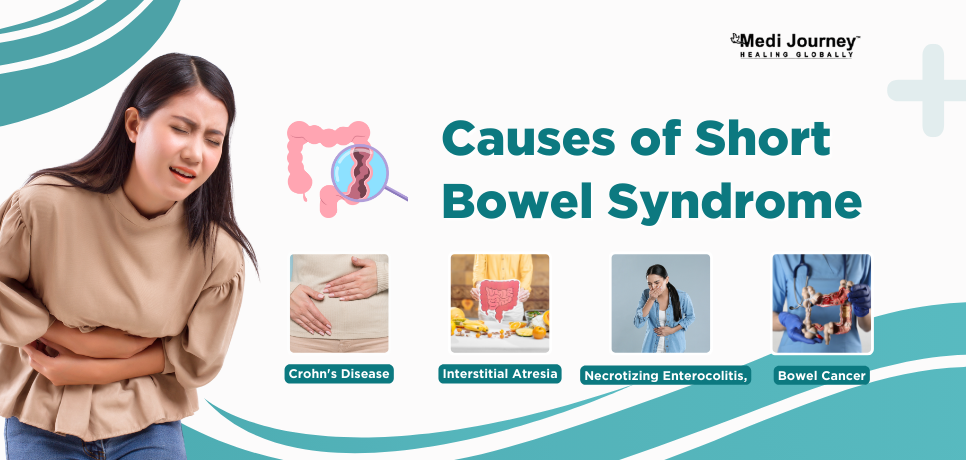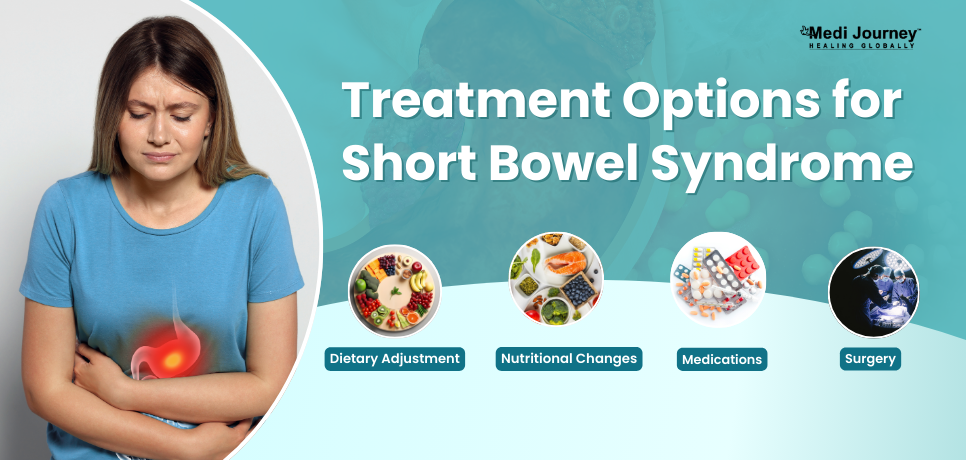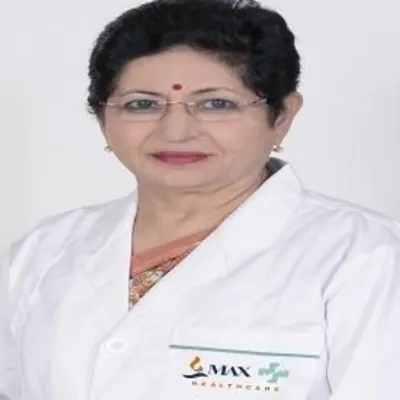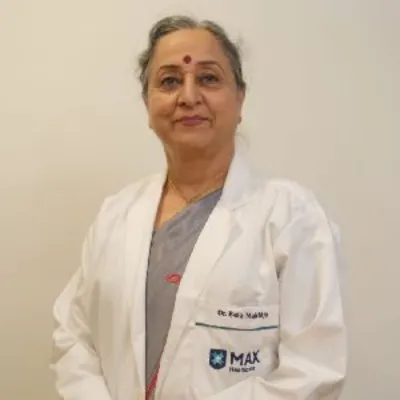Best Orthopedic Surgeons in Artemis Hospital Gurgaon
 17 December,2025
Read More
17 December,2025
Read More
Enquire now in case of any assistance needed

Many people experience gastrointestinal problems that require surgery to remove parts of the intestine. However, if a significant portion (more than 50%) of the small bowel is removed, it can lead to Short Bowel Syndrome (SBS). SBS causes various symptoms, including diarrhea, malnutrition, and dehydration, which can significantly impact a person's quality of life. This blog post will explain the symptoms, causes, diagnosis, and treatment options for Short Bowel Syndrome, helping you make informed health decisions.
Fill up the form and get assured assitance within 24 hrs!
Short bowel syndrome, abbreviated as SBS, is a condition in which the size of the small bowel reduces to less than 200 cm. The average length of the small intestine ranges from 300 to 900 cm. Around 9 liters of fluid pass through the small intestine daily, of which 7 liters are reabsorbed.
Short bowel syndrome can be congenital (present since birth) or may develop after the intestines are removed to treat particular conditions. The syndrome can also arise from various diseases, injuries, or conditions that hamper the proper functioning of the small intestine, regardless of whether the length of the bowel is impacted.
The small intestine is responsible for taking up nutrients from the food you eat. If the small intestine is damaged or removed, individuals may have trouble absorbing enough fluids, vitamins, and nutrients from food.
The signs, symptoms, and severity of short bowel syndrome can vary widely depending on the length and function of the remaining portion of the organ. Some common symptoms of short bowel syndrome include –

As the name suggests, short bowel syndrome is the shortening or reduction in the size of the small intestine. Several conditions can lead to it. Depending on the stage of life, short bowel syndrome can be classified as congenital or acquired.
Causes of short bowel syndrome in children are –
Various medical conditions warrant the need to remove a part of the intestine surgically. These disorders include –
To diagnose short bowel syndrome, your healthcare professional will conduct a rigorous physical examination to look for symptoms, ask about your medical and family history, and order imaging tests such as X-rays and CT scans. Standard diagnostic procedures for short bowel syndrome include –
Further tests may be necessary to identify or evaluate potential complications associated with short bowel syndrome. For instance, a liver biopsy may be conducted to assess the liver's health and function. Additionally, upper and lower endoscopic studies can aid in evaluating the function of the remaining intestine.
SBS, or Short bowel syndrome, can be a potentially life-threatening condition if not treated. It can cause a variety of complications, such as –

The primary aim of treating short bowel syndrome is to provide the child with accurate nutrients and relieve the symptoms. A multidisciplinary team consisting of gastroenterologists, pediatricians, hepatologists, nutritionists, dieticians, and other healthcare professionals such as phycologists will work together to maximize the treatment outcome.
Common treatment modalities for short bowel syndrome consist of –
Children with short bowels need careful nutrition monitoring. Modifying your child's food intake and nutrition can help treat short bowel syndrome. The recommended dietary adjustments may vary depending on the severity of the condition.
US FDA has approved a variety of drugs to treat and manage symptoms of short bowel syndrome. These medications include –
Short bowel syndrome can be treated using various surgical techniques. Surgery is typically a last resort for SBS when other treatments have failed. However, as the techniques advance, it may become a primary option. Different surgeries have different roles in treating short bowel syndrome and can –
Surgical options are divided into non-transplant and transplant surgeries.
Short bowel syndrome can be a challenging condition, but with proper care and lifestyle adjustments, many people with SBS can lead fulfilling lives. A multidisciplinary treatment approach that combines dietary management, medications, and sometimes surgery is crucial for optimizing the health and well-being of individuals. If you or someone you know might have short bowel syndrome, it's essential to consult a healthcare professional for prompt evaluation and to discuss the best course of treatment.
Remember, you are not alone. With proper management, short bowel syndrome can be effectively controlled, allowing you to live a healthy and active life.
Fill up the form and get assured assitance within 24 hrs!
Doctor of Pharmacy
Dr. Deepanshu Siwach is a skilled clinical pharmacist with a Doctor of Pharmacy degree.?He has 4+?years of experience and has worked with thousands of patients. He has been associated with some of the top hospitals, such as Artemis Gurgaon.
Director
Hepatologist, HPB and Liver Transplant Surgeon, Surgical Gastroenterologist
Aakash Healthcare Super Speciality Hospital, Dwarka, New Delhi
Dr. Ajitabh Srivastava is one of the best Hepatologists, Surgical Gastroenterologists, and Liver Transplant Surgeons in New Delhi. With over 26 years of experience, he has performed over 2500 liver transplant procedures. He specializes in hepato-pancreato-biliary (HPB) surgery, gastrointestinal surgery, acute liver failure treatment, laparoscopic surgery, and gall bladder surgery....
Senior Consultant
Medical Oncologist
Nanavati Super Specialty Hospital, Mumbai
WhatsApp UsSenior Director
Gynecologist and Obstetrician, IVF Specialist
Max Super Speciality Hospital, Shalimar Bagh, New Delhi
WhatsApp UsSenior Director
Gynecologist and Obstetrician, IVF Specialist
Max Smart Super Speciality Hospital, Saket, New Delhi
WhatsApp UsSenior Director
Gynecologist and Obstetrician
Max Smart Super Speciality Hospital, Saket, New Delhi
WhatsApp UsSenior Director
Gynecologist and Obstetrician
Max Smart Super Speciality Hospital, Saket, New Delhi
WhatsApp UsSenior Director
Gynecologist and Obstetrician
Max Smart Super Speciality Hospital, Saket, New Delhi
WhatsApp UsThe Art of Effective Communication
 17 December,2025
Read More
17 December,2025
Read More
 16 December,2025
Read More
16 December,2025
Read More
 10 December,2025
Read More
10 December,2025
Read More
 09 December,2025
Read More
09 December,2025
Read More
 05 December,2025
Read More
05 December,2025
Read More
 04 December,2025
Read More
04 December,2025
Read More
Trusted by Patients
"I am Asim from Bangladesh and was looking for treatment in India for neuro. I visited many websites to get the complete information regarding the treatment but I was not satisfied as I was getting confused. In the meanwhile, one of my friends suggested I seek help from Medi Journey as he experienced his medical journey very smoothly and was satisfied with it. They have filtered the top 10 doctors as per experience, the success rate of surgery & profile, so it helps us to choose the best treatment in India. "
"For my knee surgery, Medi Journey guided me to BLK Hospital where I received exceptional care. The team's support and the expertise at BLK Hospital exceeded my expectations. Thank you Medi Journey for making my medical journey stress-free. "
"I came from Iraq for my granddaughter's eye surgery in India facilitated by Medi Journey, due to critical cases they advised us to get a second opinion from the different hospitals before going to surgery. Finally, we went to Fortis Escort Hospital, which helped us to get more confidence for diagnosis. Fortis Escort Hospital has the best eye surgeon team with the latest instruments. Thanks to all team members for providing a high-quality treatment in India at an affordable cost. "
"I came for my hair transplant in India, before coming I was so confused about choosing the best clinic and surgeon for me. But thanks to God one of my friends had a hair transplant in India through Medi Journey. He recommended me to go with them. I am completely happy with my experience with them. They were always very fast in their responses to me. the success rate of my hair transplant surgery is 100%."
"Artemis Hospital, suggested by Medi Journey, turned out to be a great choice for my treatment. The personalized assistance and medical care were exceptional. I'm grateful to Medi Journey for guiding me to a hospital that perfectly matched my needs. Highly recommended! "
"I came from Afghanistan for my treatment in India at Jaypee Hospital, Noida. I had a fantastic experience with Medi Journey. Kudos to them for their incredible support during my medical journey. They not only took care of all the logistics but also connected me with a fantastic healthcare team. Efficient, caring, and highly recommended for a hassle-free medical tourism experience."
"I am Adam from Kano, Nigeria, one of my friends from Nigeria was facilitated by Medi Journey, and he recommended us to go with them. I sent my all reports to them and within 48 hours they reverted with 4 options from different hospitals. They helped me to get a Visa letter from the hospital, arrange pick-up from the airport, and book a hotel for me. Their team is very honest and throughout our stay in India they are with us they are caring for us like his family members. BLK Hospital is the best hospital in India with a top surgical oncologist surgeon team, a very advanced OT, and a Radiotherapy department. I wish more success to Medi Journey. "
"Great experience at the Max Hospital for my spine surgery and was successfully done. I thank my neurosurgeon and his entire team. I recommended all of my country's people to Medi Journey for treatment in India, they choose the best hospital, the best doctors, and the best cost for patients."
"I came to India from Dhaka, Bangladesh for my father-in-law's cardiac surgery at Fortis Hospital. I was confused about choosing the best surgeon for him before coming, but their team helped me to choose the best hospital and best cardiac surgeon in India with very good cost and 100% success rate of surgery. I am very happy with the services, really they make my journey so comfortable that make me feel at home. Thanks again and I like people to choose "Medi Journey" as your travel guide. "
"I am Mohammad from Bangladesh came to India for my general health checkup. Medi Journey offers me the complete package including Pick-up from the airport, hotel services, and 24-hour assistance. They guide you to choose the best hospital in India, the best cost of treatment with top-most doctors and give you complete information about hotel booking, and pick-up from the airport before coming to India They have the best team to help. Always choose Medi Journey for your treatment in India."





